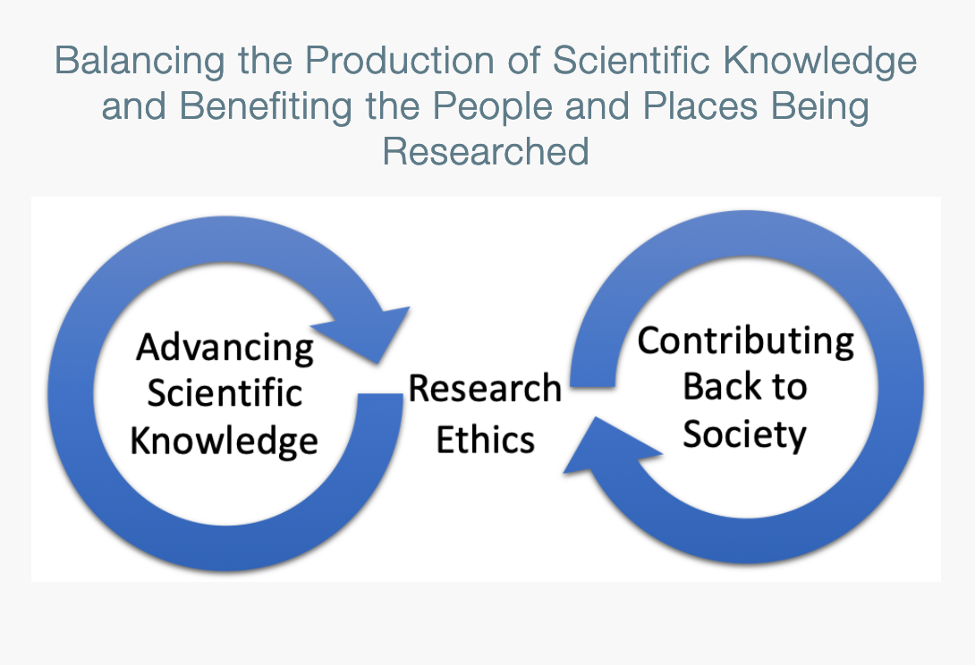FOR IMMEDIATE RELEASE
NHERI CONVERGE Releases 7th Training Module: Broader Ethical Considerations for Hazards and Disaster Researchers
Ethics infuses the research process, from developing research questions to disseminating findings
Boulder, Colo, April 8, 2021 The Natural Hazards Engineering Research Infrastructure (NHERI) CONVERGE facility announces the release of its latest online training module: Broader Ethical Considerations for Hazards and Disaster Researchers.
Developed with supplemental support from the Centers for Disease Control and Prevention, this module discusses important ethical considerations for conducting research in a disaster setting. It also describes how ethical concerns infuse the entire research lifecycle and underscores challenges that can occur in the context of disaster research. This course is part of a series of online training modules designed to support hazards and disaster researchers and research teams to conduct ethical and methodologically sound studies.

Ethical Decision-Making in Disaster Research
The newest CONVERGE training module builds on the already released Institutional Review Board (IRB) Procedures and Extreme Events Research Training Module by discussing ethical issues and dilemmas that may occur outside the purview of ones IRB. The Broader Ethical Considerations Training Module begins by defining research ethics more holistically and describes how ethical decision-making influences study design, data collection, and the reporting of research results. Examples of the unique ethical challenges associated with conducting disaster research such as obtaining consent from disaster survivors and working in international and cross-cultural disaster settings are shared to demonstrate the different ways ethics manifests within hazards and disaster research.
Awareness of research ethics helps to ensure ones investigations promote the production of scientific knowledge that reciprocally benefits academic communities and the people and places being studied, said Rachel Adams, a research associate at the CONVERGE facility and one of the lead developers of the module. We demonstrate how ethical decision-making occurs at each stage of a study from deciding what questions to ask survivors to sharing results with stakeholders.

The Broader Ethical Considerations Training Module discusses how research ethics balances the production of scientific knowledge with benefiting people and places being researched. (Source: https://converge-training.colorado.edu/topic/what-is-research-ethics/)
The interactive module includes sliders and diagrams to describe key concepts related to research ethics, such as informed consent, participant burden, and research participant selection. The module concludes with a discussion of strategies for conducting ethically sound disaster research.
While there may not always be a right or wrong answer to every ethical dilemma a researcher may encounter, familiarizing oneself with common ethical concerns and knowing how to apply ethical frameworks can assist with these challenges, said Candace Evans, graduate research assistant at CONVERGE and the other lead developer of the module. This training provides recommendations for engaging in methods and strategies to enhance the ethical conduct of disaster research, Evans said.
Our hope is that by taking this module, researchers from diverse backgrounds and disciplines will be able to develop their own ethical toolkit that will allow them to engage in practices that effectively balance study risks and potential societal benefits, said Lori Peek, principal investigator of the NHERI CONVERGE facility. This module provides the tools needed to develop a flexible ethical compass to guide decision-making during research.
The CONVERGE website includes lists of available resources and previously released modules on topics of social vulnerability and disasters, disaster mental health, cultural competence, Institutional Review Board procedures, emotionally challenging research, and gender-based violence in fieldwork. The next training modules to be released in the series include:
- Collecting and Sharing Perishable Data (in partnership with the Centers for Disease Control and Prevention)
- Reciprocity in Field Research (in partnership with the U.S. Geological Survey)
- Public Health Disaster Research (in partnership with the Centers for Disease Control and Prevention)
To receive updates and information on new CONVERGE training modules and other free online resources, please subscribe here.
Media Contacts
Lori Peek, PhD
Professor, Department of Sociology
Director, Natural Hazards Center
Principal Investigator, NHERI CONVERGE, SSEER, and ISEEER
University of Colorado Boulder
lori.peek@colorado.edu
About the Natural Hazards Engineering Research Infrastructure
Funded by the National Science Foundation, the Natural Hazards Engineering Research Infrastructure, NHERI, is a network of experimental facilities dedicated to reducing damage and loss-of-life due to natural hazards such as earthquakes, landslides, windstorms, and tsunamis and storm surge. It is supported by the DesignSafe Cyberinfrastructure. NHERI provides the natural hazards engineering and social science communities with the state-of-the-art resources needed to meet the research challenges of the 21st century. NHERI is supported by multiple awards from NSF, including the NHERI Network Coordination Office, Award #1612144 and NHERI CONVERGE, Award #1841338.





